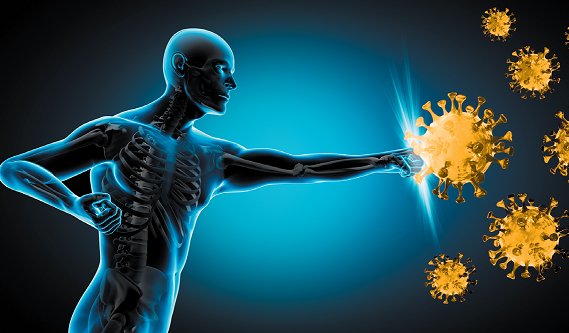Unlocking the Secrets of Effective Fitness Recovery for Optimal Performance

In the quest for optimal athletic performance, there's a critical aspect that often gets overlooked: fitness recovery.
While many focus on training regimens and pushing their limits, the truth is that proper recovery is essential for not only enhancing performance but also preventing injuries and ensuring longevity in any fitness journey.
In this article, we will unravel the secrets of effective fitness recovery, exploring various techniques, the vital role of nutrition and sleep, and the importance of mental well-being.
Whether you're a seasoned athlete or a health-conscious individual striving for improvement, understanding these principles will equip you to create a personalized recovery plan that fosters optimal results and elevates your performance to new heights.
View Our Luxury Cold Therapy Products

Key Takeaways
- Fitness recovery is essential for preventing injuries and enhancing athletic performance.
- Implementing diverse recovery techniques can address different aspects of physical and mental well-being.
- Nutrition plays a critical role in optimizing recovery and fueling subsequent workouts.
- Prioritizing quality sleep significantly impacts both recovery and overall performance levels.
- Mental recovery is often overlooked but is crucial for maintaining motivation and focus in fitness routines.
Understanding the Importance of Fitness Recovery
Fitness recovery is an essential component of any training regimen, acting as the bedrock upon which strength, endurance, and overall performance are built.
Understanding the importance of recovery goes beyond mere rest; it entails a holistic approach that includes various techniques such as active recovery, stretching, foam rolling, and professional therapies like massage or physiotherapy to alleviate muscle tension and prevent injuries.
Furthermore, nutrition plays a pivotal role in maximizing recovery, as consuming the right balance of macronutrients—particularly proteins and carbohydrates—immediately post-workout can significantly enhance muscle repair and glycogen replenishment.
Equally vital is the role of sleep, often overlooked but critical for performance enhancement and cognitive function; during sleep, the body undergoes vital repair processes, enhancing physical resilience and mental clarity for subsequent training sessions.
Moreover, mental recovery, the unsung hero of fitness, is fundamental for maintaining motivation, focus, and emotional well-being; practices like mindfulness, meditation, and even leisure activities foster a balanced mindset that contributes to optimal athletic performance.
To harness these elements effectively, athletes and fitness enthusiasts alike should strive to create a personalized recovery plan tailored to their unique needs, goals, and lifestyles, ensuring that each recovery strategy synergistically elevates their overall fitness journey and unlocks their true potential.
Different Types of Fitness Recovery Techniques
Fitness recovery is a crucial yet often overlooked aspect of athletic performance and overall wellness, serving as the foundation for achieving peak physical condition.
Understanding the different types of fitness recovery techniques—ranging from active recovery sessions that enhance circulation to passive approaches like massage therapy—can dramatically improve your body's ability to regenerate and adapt to intense training.
Nutrition plays a pivotal role in maximizing recovery; consuming a balanced ratio of carbohydrates and proteins post-exercise replenishes glycogen stores and repairs muscle tissue, while proper hydration flushes toxins and prevents fatigue.
Furthermore, sleep is a non-negotiable component of fitness recovery, as it allows the body to heal at a cellular level, enhances cognitive function, and fuels motivation for subsequent workouts.
Equally important is mental recovery, which often goes unnoticed but is vital for sustaining focus and reducing stress; practices such as mindfulness and visualization can boost your psychological resilience.
Finally, crafting a personalized recovery plan tailored to your unique training demands and lifestyle will enable you to harness these strategies effectively, ensuring you not only recover well but also thrive in your pursuit of fitness excellence.
Embracing the multifaceted nature of fitness recovery can transform your journey into a powerful, holistic experience that fosters both physical and mental growth.
'Take care of your body. It's the only place you have to live.' - Jim RohnView Our Luxury Cold Therapy Products

Nutrition's Role in Maximizing Recovery
Nutrition plays a pivotal role in maximizing fitness recovery, acting as the unsung hero that restores energy, repairs muscles, and rejuvenates the body after intense physical activity.
For athletes and wellness seekers alike, the right balance of macronutrients — carbohydrates, proteins, and fats — is crucial for post-exercise recovery; carbohydrates replenish glycogen stores depleted during workouts, while protein is essential for muscle repair and growth.
Additionally, incorporating a variety of vitamins and minerals through whole foods can enhance the body’s natural healing processes and reduce inflammation.
By prioritizing nutrient-dense meals and supplements like omega-3 fatty acids and antioxidants, health-conscious individuals can optimize their recovery, ultimately boosting performance and preventing injury.
Remember, fueling your body wisely isn’t just a choice; it’s a transformative journey that empowers you to reach your peak potential and thrive in your fitness endeavors.
The Importance of Sleep for Performance and Recovery
Sleep is arguably one of the most powerful yet underrated tools in the arsenal of fitness recovery and overall performance enhancement.
For athletes and wellness seekers alike, the profound impact of quality sleep cannot be overstated; it is during these vital hours of rest that the body repairs damaged tissues, synthesizes proteins, and releases growth hormones—all crucial processes that lead to optimal recovery.
Furthermore, sufficient sleep improves cognitive function and enhances reaction times, thereby sharpening an athlete's competitive edge.
As health-conscious individuals, prioritizing sleep is not just about quantity but quality; establishing a consistent sleep routine, creating a restful environment, and disconnecting from technology can dramatically improve sleep efficacy.
Embracing the understanding that recovery is just as important as the workouts themselves can inspire one to treat sleep as a critical component of their fitness journey.
By valuing sleep as a strategic recovery asset, athletes and biohackers alike can unlock their fullest potential and elevate their game, ensuring their performance peaks when it matters most.

Mental Recovery: The Unsung Hero of Fitness
Mental recovery is often overshadowed in discussions surrounding fitness recovery, yet it remains a pivotal aspect that can dramatically enhance athletic performance and overall well-being.
Athletes and wellness seekers alike must recognize that physical training is just one part of the equation; the mental component is equally critical in achieving peak performance.
Incorporating mindfulness techniques, adequate rest, and positive affirmations into your recovery regimen not only rejuvenates the mind but also fortifies the body's resilience against stress and fatigue.
Understanding the profound connection between mental clarity and physical output can inspire individuals to embrace holistic recovery practices—fostering a mindset that values both physical gains and mental fortitude.
By prioritizing mental recovery, athletes can unlock their full potential, turning fitness from a mere activity into a transformative journey of growth, resilience, and unyielding motivation.
Creating a Personalized Recovery Plan for Optimal Results
Creating a personalized recovery plan is essential for athletes and health-conscious individuals seeking optimal results in their fitness journeys.
Understanding that recovery is not merely a passive process but an active component of training can significantly enhance performance and longevity.
Start by assessing your unique needs—consider factors such as workout intensity, frequency, and personal goals.
Incorporate strategies like adequate sleep, proper nutrition, and hydration tailored to your body's demands, alongside specialized techniques such as foam rolling, massage therapy, or active recovery sessions.
Moreover, tracking your recovery progress through metrics like heart rate variability or perceived exertion can inform necessary adjustments.
By committing to a customized recovery routine, you harness the power of intentional rest and rejuvenation, enabling your body to repair, grow stronger, and ultimately push past previous limitations.
This holistic approach to fitness recovery not only inspires resilience but also empowers you to cultivate a sustainable, thriving athletic lifestyle.
Frequently Asked Questions
What is fitness recovery and why is it important?
Fitness recovery refers to the methods and strategies used to help the body heal and adapt after physical activity.
It's crucial because it reduces the risk of injury, enhances performance, promotes muscle repair, and ensures that the body is prepared for future workouts.
What are some effective recovery techniques I can use?
Effective recovery techniques include active recovery (low-intensity exercises), static stretching, foam rolling, massage therapy, cold therapy, and yoga, to name a few.
Each method targets different aspects of recovery to aid the body in rejuvenation.
How does nutrition impact my fitness recovery?
Nutrition plays a vital role in fitness recovery by providing the essential nutrients your body needs to repair muscles, replenish energy stores, and combat inflammation.
A diet rich in proteins, healthy fats, and carbohydrates, along with adequate hydration, significantly enhances recovery.
Why is sleep essential for recovery and athletic performance?
Sleep is essential for recovery because it is during sleep that the body repairs tissues, builds muscle, and regulates hormones essential for recovery.
Quality sleep also improves mental clarity and focus, which are vital for optimal athletic performance.
How can I create a personalized recovery plan?
To create a personalized recovery plan, assess your fitness level, training intensity, and schedule.
Incorporate a variety of recovery techniques, prioritize sleep and nutrition, and adjust your plan based on how your body responds to different recovery strategies.




